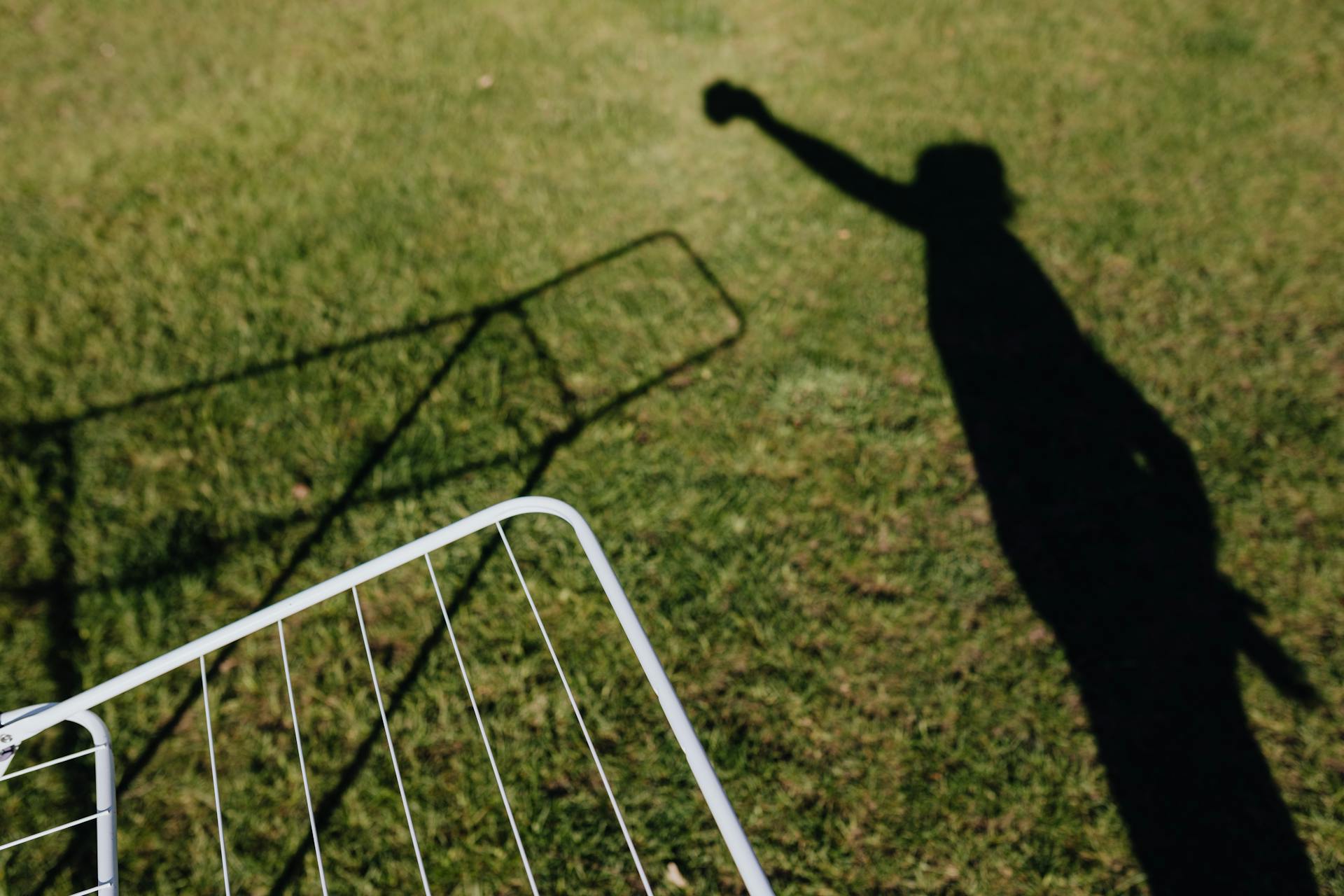
Life skills are the essential abilities that individuals need to navigate through their everyday lives. These skills help people to manage stress, communicate effectively with others, and adapt to new situations. Life skills are interconnected and can be divided into several categories.
One such category is interpersonal skills, which include communication, teamwork, conflict resolution, and empathy. Developing these life skills can enhance relationships with family members, friends, colleagues and even strangers. It can also lead to positive behavior and improve the quality of life.
Another important life skill is the ability to develop adaptive strategies. This involves the capacity to handle unexpected changes in circumstances and remain flexible in the face of adversity. For instance, learning how to stop taking things personally or developing resilience in difficult times can help individuals overcome challenges and achieve success in various aspects of their lives.
Intriguing read: Main 4 Skills
First Important Life Skill: How to Stop Taking Things Personally

One unfortunate side effect of consciousness residing in our brains is that everything that happens in our lives involves us. Traffic today cut into our time, the cable news show last night pissed us off, and our company's massive growth this year gave us a good feeling. We are inherently biased toward anything that affects us.
Taking things personally feels good for short periods of time. Good experiences raise our self-esteem roller coaster, while bad experiences make our self-worth bob up and down like a ship experiencing dizzying highs and crashing lows from the merciless tides. However, constantly living with a sense of self-righteous victimhood or the emotional vampire or anti-social black hole simply means we will be horribly hurt or absolutely convinced we never do anything right because deserving isn't part of the equation.
The first important life skill to learn is that people criticize you not because they hate you but because they want to help you become a better person. People simply don't have time for drama, so if someone tells you that your behavior is hurting them, it's not an attack on your character—it's feedback on your actions. It may sound a bit dramatic, but truly understanding how to stop taking things personally is one of God's gifts to those who want to live happier lives.
Related reading: Self Esteem
1. 95 people had breakthroughs last week. This week, will one of them be you?
Are you tired of feeling stuck in the same old routines? Do you want to join millions of people who have experienced breakthroughs in their lives? Last week, 95 people had breakthroughs and this week, it could be your turn.
By subscribing to our breakthrough newsletter, you'll receive unexpected emails filled with valuable life skills and tips that can help you achieve your goals. Don't wait for a miracle to happen, take control of your life and start making positive changes today. Join the community of individuals who are dedicated to improving themselves and see what kind of breakthroughs you can achieve. Enter your email now and let's start this journey together!
You might enjoy: Life Lessons from
What Is Dream Analysis?

Dream analysis is a therapeutic technique that involves exploring the meaning of dreams to gain insight into one's thoughts and emotions. It is based on the idea that dreams are a reflection of unconscious desires, fears, and motivations, and that by interpreting them, individuals can better understand themselves and their relationships with others. Dream analysis can be particularly helpful for uncovering patterns of motivated reasoning or finding meaning in difficult experiences.
Mastering Essential Abilities: Learning Life Skills
Interpersonal capabilities termed life skills are strengths and weaknesses that contribute hugely to one's life, especially in terms of basic education process. It includes gender equality, democracy quality, and child care, among others. Life skills contribute significantly to a person's good citizenship and lifelong learning. According to the 2017 assessment conducted on medical students in Mashhad, Iran, life skills training positively impacted their general health.
Improving decision-making skills research indicates that critical thinking and creative thinking are essential components of life skills education. In a 2004 study on interpersonal skills, it was found that life skills training improves communication and problem-solving abilities. The work published in the Indian Journal of Psychiatry in 2010 showed empowering adolescents through life skills education improved self-esteem and reduced risky behavior.
Measuring self-awareness construction is an important outcome of the questionnaire published in Europe's Journal of Psychology in 2016. Understanding resilience is another crucial aspect of life skills development highlighted by research published in Frontiers in Psychology in 2013. Therefore, mastering essential abilities such as critical thinking, creativity, communication, decision-making, self-awareness, and resilience are extremely important for personal growth and success.
On a similar theme: B2b Important Customer Service Skills
Understanding Introversion: What You Need to Know

Introversion is a personality trait typically marked by preferring involvement in solitary activities or small groups, and feeling mentally energized by being alone. In contrast, extroverts feel physically energized by social interaction and may feel drained without it. It's important to understand that introversion and extroversion are simply personality traits, not emotional states, and both have their own strengths and challenges. So, if you're an introvert, don't worry! There are plenty of life skills you can learn to thrive in a world that often values extroverted personality traits.
Enhance Your Abilities in Life with These Simple Steps

Good news: life skills are something that everyone can acquire! Whether you're exposed to them through your family, school or work environment, there are plenty of ways to develop these important soft skills. The ability to read situations and make decisions is just one example of a life skill that can benefit you in many areas of your life.
Time management is another crucial life skill that can help you stay organized and productive. With so many distractions around us (hello, social media!), it's easy to get caught up in the chaos. But by taking the time to prioritize tasks and set goals, you'll be able to make the most of every day. Technology skills are also important in today's world, as we rely more and more on digital tools for communication and productivity. Don't be afraid to take advantage of online resources like books, podcasts or tutorials to keep your tech skills sharp.
Finally, being open to constructive criticism is a valuable life skill that can help you grow both personally and professionally. It's not always easy to accept feedback from others, but if you approach it with an open mind and a willingness to learn, it can be a huge asset. By being deliberate about improving your own abilities and seeking out opportunities for growth, you'll be held accountable for your actions – which is a great thing! Remember: life skills aren't something you perfect overnight – but as long as you're constantly gaining new insights and rapidly improving, you're on the right track.
Boost Your Resume with Life Skills: A Practical Guide

Are you struggling to stand out from other job candidates? One way to boost your resume is by including life skills explicitly in both the skills section and professional history section. Potential employers value soft skills just as much as technical skills, so make sure to highlight them.
To ensure your skills are laid out clearly for employers, focus on clear writing when creating your resume. Use bullet points and concise language to showcase your abilities. Check out a sample resume for a project manager or another position in your field to see how life skills listed can be incorporated effectively. By highlighting your communication, teamwork, leadership, and problem-solving abilities, you can show potential employers that you have the necessary qualities to succeed in any profession.
Ways to Demonstrate Your Life Skills during a Job Interview

Interview questions are not only about testing the candidates' professional on-the-job skills but also their intangible life skills. Hiring managers use behavioral interview questions to get insights into how applicants have handled situations in the past. A straightforward strategy for answering these questions is to use the STAR method (Situation, Task, Action, Result). This method helps make your answer tidy and coherent.
One of the most common interview questions that test life skills is "Tell me about a time when you had too many time commitments." The answer shows great life skills such as finish enthusiasm and a say-yes attitude. For example, an applicant drew up a to-do list, but they simply couldn't finish everything because they underestimated their workload. Nevertheless, they apologized profusely and managed to complete a high-priority report by working late hours. Such an experience showing initiative and responsibility would leave a good impression on hiring managers.
Another example of demonstrating your life skills during an interview is when asked about how you manage relationships with difficult colleagues or clients. The person's answer shows if they are thoughtful, considerate team-players who can stay calm and rational in challenging situations while actively listening to others' perspectives. For instance, if an applicant worked at ABC Corp., where their boss wanted them to begin spending more money on Facebook ads despite social media spending hadn't produced meaningful sales numbers or end traffic on landing pages. The applicant proposed a good compromise by suggesting an effective test with positive results presented evidence-based research compiled by web development teams that Facebook wasn't the best option for social media ad campaigns at ABC Corp.
Discover the Importance of Life Skills

Life skills are essential for every individual to navigate through everyday life. These skills are easily transferable and can be applied across several experiences and roles, including personal and professional ones. Unlike professional or technical skills, life skills are general skills that encompass a range of soft skills, such as communication, self-management, etiquette, and other broad competencies.
Personal skills are an important part of life skills. They include self-awareness, problem-solving, decision-making, critical thinking, creativity, and goal-setting. These soft skills help individuals to manage their emotions and relationships with others effectively. In contrast, professional skills relate to specific job requirements or duties that individuals need to perform in their careers. However, employers value both personal and professional skills in their employees because they impact productivity levels.
In conclusion, learning life skills is crucial for personal development and success in all aspects of life. These broad competencies prepare individuals for everyday challenges they may encounter at home or work. Additionally, mastering these general skills can boost an individual's confidence level in social situations while enhancing their communication abilities. Therefore it is essential that we focus on developing our life skills throughout our lives to become more successful individuals in all areas of our lives!
Discovering What Life Skills Really Mean
Life skills are essential skills that enable individuals to handle difficult challenges effectively in everyday life. According to a 2012 study, life skill approaches focus on developing psychosocial competency and basic social cognitive and interpersonal capabilities acquired through direct life experiences. These include executive functions such as goal setting, decision making, problem-solving, and processing emotions.
People shows that possessing these skills provides extremely crucial knowledge for working environment situations. A 2010 research paper also indicates that teaching these skills can prevent school dropout cases among young people and health-related issues. Therefore, specially designed programs that help people learn how to effectively handle issues and situation effectively interacting with others are necessary for mental well-being.
Mastering Vital Life Skills: What You Need To Know

Mastering vital life skills is essential to living a satisfying life. The comprehensive list of important life skills varies depending on peoples' life circumstances, which can include culture, belief, and geographical location. However, some essential life skills that are necessary for everyday life include communication, problem-solving, time management, financial management, and self-care. By mastering these skills, individuals can navigate through the challenges of everyday life with ease and achieve their goals.
1. Creative thinking
Thinking creatively is a skill that can significantly improve peoples' lives. According to a 2008 research paper, thinking creatively consists of four elements: fluency, flexibility, elaboration and originality. Thinking creatively adds value to any situation by generating new ideas and solutions that might not have been considered before.
However, being a creative thinker requires more than just the ability to come up with ideas. This skill requires developing creative courage, adopting leadership qualities, listening to others' perspectives, and being willing to make mistakes despite the resultant risk. Brainstorming is an obvious solution when it comes to thinking creatively, but there are many other ways to stimulate your imagination and develop your creativity.
Frequently Asked Questions
What are the most basic life skills?
The most basic life skills include communication, problem-solving, and decision-making. These skills are essential for navigating daily tasks, relationships, and personal growth.
What are the best life skills?
The best life skills include effective communication, time management, problem-solving, critical thinking, and emotional intelligence. These skills allow individuals to navigate various aspects of life with confidence and success.
How should I start learning life skills?
Start by identifying the life skills you want to learn and create a plan to develop them. Seek out resources such as books, online courses, or workshops to support your learning and practice consistently. Don't be afraid to ask for help or guidance along the way.
What are life skills and why teach them?
Life skills are a set of abilities that enable individuals to manage their daily lives effectively. Teaching them helps people to become more self-sufficient, resilient and able to adapt to the challenges of life.
What skills do you need in life?
The most important skills to have in life include communication, problem-solving, time management, adaptability, and critical thinking. These skills can help you navigate through various situations and achieve success in both personal and professional aspects of your life.
Featured Images: pexels.com


